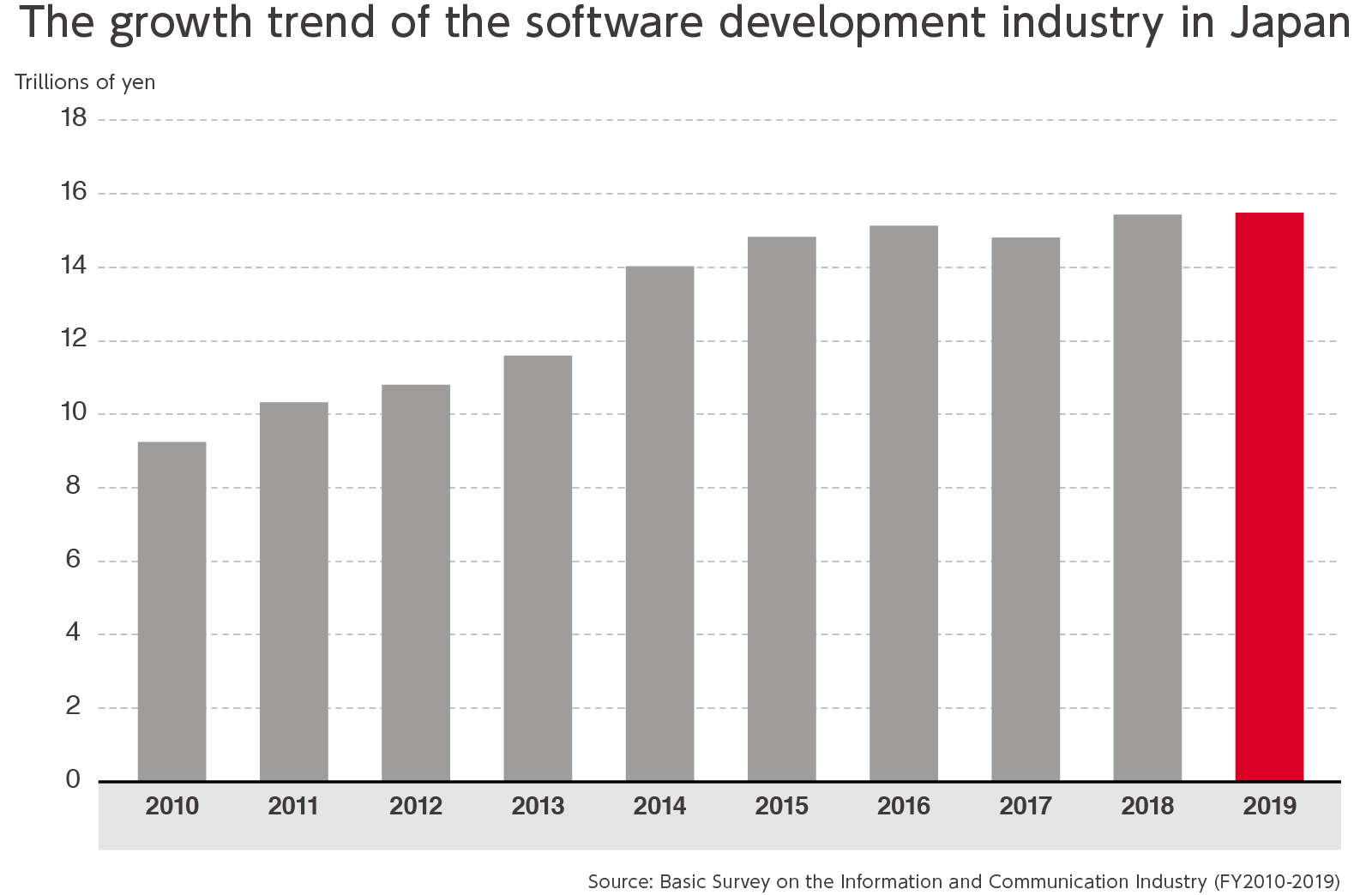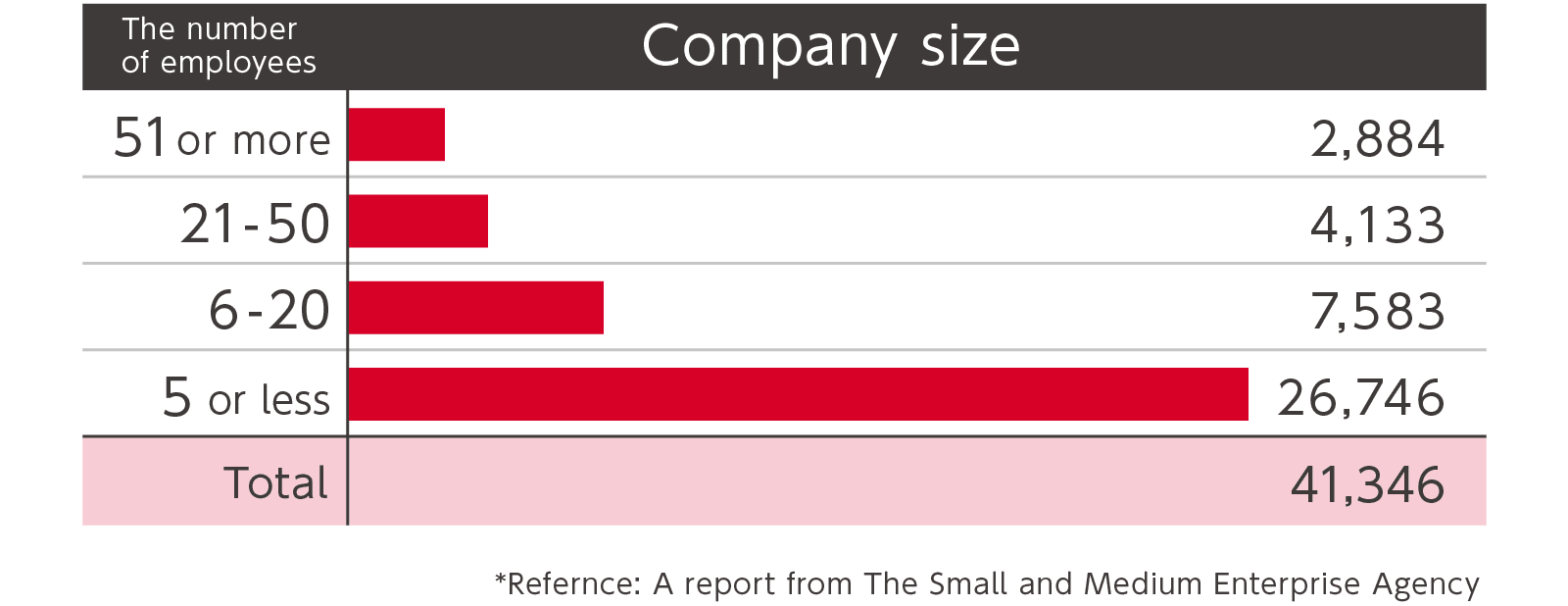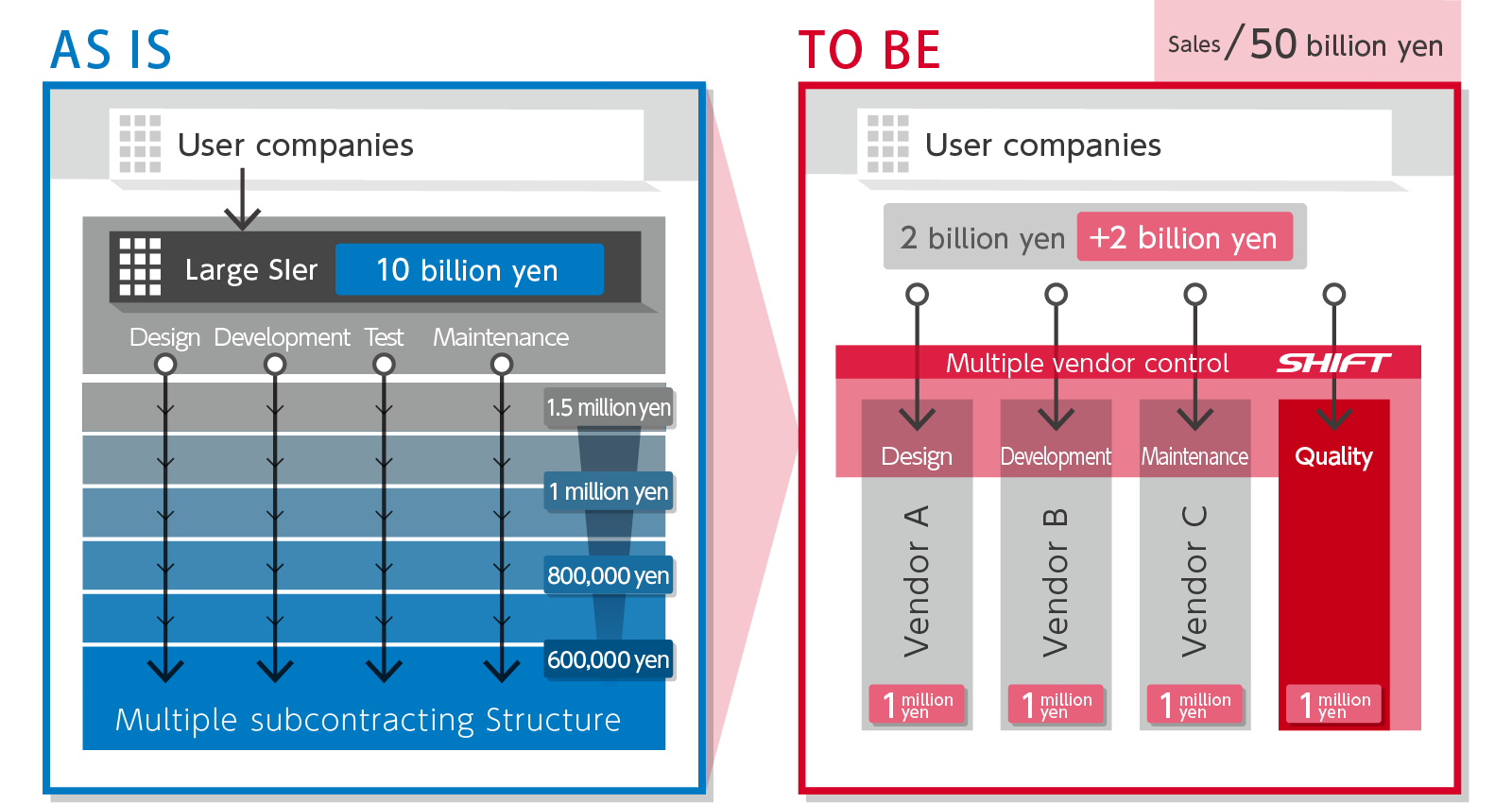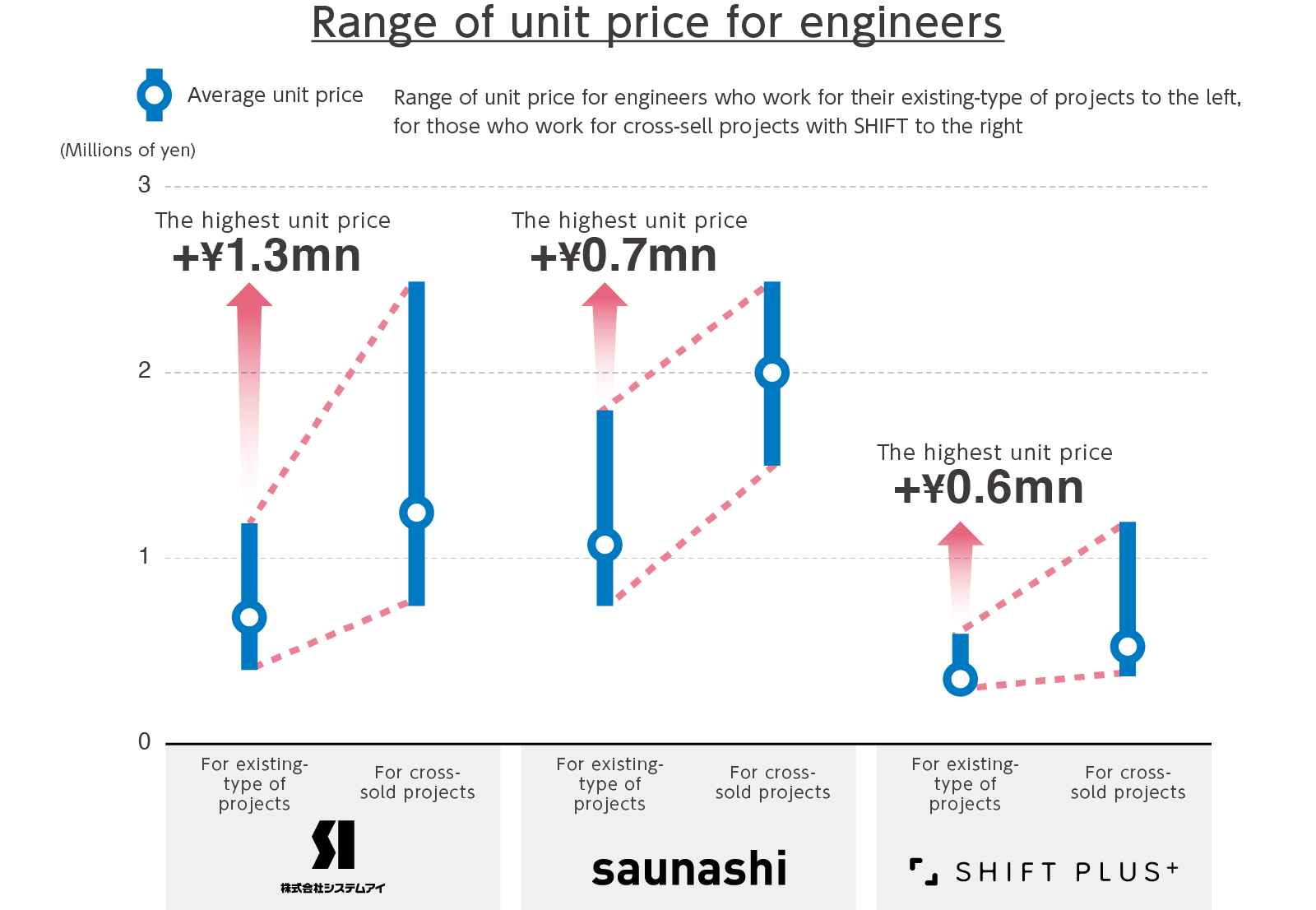Environment and Issues Surrounding SHIFT
SHIFT aims to promote structural reforms by providing comprehensive services in the IT sector in order to improve the work environment for engineers, to improve the quality of IT products and services, and to encourage digitization of society as a whole.
The market size of IT Industry in Japan
The market size of the software-development industry is about ¥16 trillion. The software testing market is estimated to be worth ¥5.5 trillion.

The Japanese software industry continues to grow in size. We believe that this market will continue to grow due to work style reforms, the digital transformation promoted by government agencies and companies, and technological trends such as 5G, artificial intelligence and the Internet of Things (IoTs).

Multi-subcontracting Structure in IT Industry
IT industry faces numerous challenges, such as a shortage of IT personnel and the long-standing practices of the industry. One of the challenges SHIFT is seeking to address is the so-called “multi-subcontracting structure”, which roots to nature of the software-development business model in Japan. A multi-subcontracting structure refers to a system in which a primary vendor (System Integrator) passes an order to a vendor in the “second-level,” and the one in the “second-level,” again, passes to the one in the “third-level.” This subcontracting flow is structured to encourage the industry to be hierarchical with several levels. The low remuneration for subcontractors who receive orders at the bottom of the structure and the low wage for their employees are considered to be problems. Moreover, it is said that many of software development companies in Japan are small and medium-sized that receive orders in the subcontructing flow. Therefore, majority of engineers in Japan are considered to be in a high-load, low-compensation work environment.
Social issues in IT industries are emerging as structural issues become more prevailing. In addition, against the rising demand for IT, we expect a further shortage of IT personnel(*) in the future. Therefore, it is easy to imagine that the burden per engineer is expected to increase even further.
(* Source: “Establishment of infrastructure related to a data-driven society in Japan in FY2018 (Survey and analysis project to support the development of IT personnel)— Survey on the supply and demand of IT personnelー,”commissioned by the Ministry of Economy, Trade and Industry, conduted by Mizuho Information & Research Institute, Inc.) Note that the title of the source is translated by SHIFT and that FY2018 in the title means fiscal year of Japanese government.)


Initiatives that SHIFT Takes
SHIFT is working to resolve this issue, “multi-subcontracting structure” by leveraging our unique strengths, including rich experiences with major development vendors, expertise in consulting and project management centered on quality, and expertise in software testing. While prime vendors (SIer companies) were the first ones to take orders and to flow the orders to subcontractors conventionally, SHIFT promote projects with communicating directly with user companies in the upstream process of the project. By placing orders directly to lower or bottom vendors that are truly capable of handling the projects, regardless of hierarchical structure or company size, we will be able to eliminate the hirerarchal gap and ensure that orders are placed at an appropriate price. In addition, by managing multi vendors horizontally and undertaking all of the software test process and its related operations, we will smoothly promote projects and optimize product quality.

As of 2020, user companies accounted for approximately 80% of SHIFT’s total net sales. This means that SHIFT is not in multi-subcontracting structure and is essential for customers. In addition to resolving issues through our business, we are also aiming to improve industry structure by proactively engaging in M&A. Many small-size SIers have solid skills and technologies that should be worth a higher unit price. SHIFT has welcomed such SIers as our group companies, and promoted to provide appropriate remuneration and work environment for those group companies. SIers belonging to SHIFT Group receive direct orders from user companies part of which are SHIFT’s customers, enabling them to participate in projects at a higher unit price, or at the same level for conventional prime vendors.

In the IT industry in Japan, there are not only multiple subcontracting structures, but also shortage of IT personnel or a variety of other issues. SHIFT will continue to work diligently to resolve these issues step by step.

